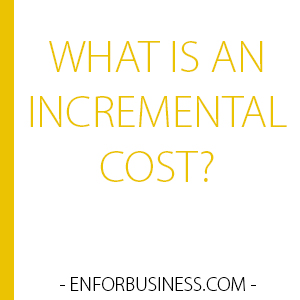 Definition
Definition
An incremental cost is the amount of additional expenses a company incurs when they produce one additional unit of product or service. This calculation is similar to the cost per unit but specifically looks at how costs change when production or activity changes.
Determining the incremental cost of a product, can help a business with many decisions. For example, if a company is negotiating a new order that would require increased production, they should make sure the contract sales price per unit is at least greater than the incremental cost of that product so that they do not lose money. Similarly, if a manufacturer is considering a price cut in order to attract additional sales, they should first know the incremental cost of their product. That way they can make sure they do not reduce their price too low.
What Does Incremental Cost Mean?
Incremental cost is sometimes referred to as relevant or marginal cost. These costs are mostly effected by variable expenses that are directly tied to the amount of production or activity of the business. This includes the cost of purchasing raw materials, labor expenses and utilities. In most cases, these costs would increase when production increases and decrease when production decreases. In comparison, other expenses such as rent usually remain fixed even when production changes, unless the business chooses to expand or reduce its facilities.
Example
Incremental cost is determined by comparing the cost per unit at two different activity levels. For example, if a company increases its production from 1,000 units to 1,400 units and the expenses for the company increase from $125,000 to $175,000 the incremental cost of each unit is $125 ($175,000 – $125,000= $50,000; 1,400 – 1,000 = 400; $50,000 / 400 = $125 / unit). Therefore, the company should not increase production unless they can sell each unit for a minimum of $125.
